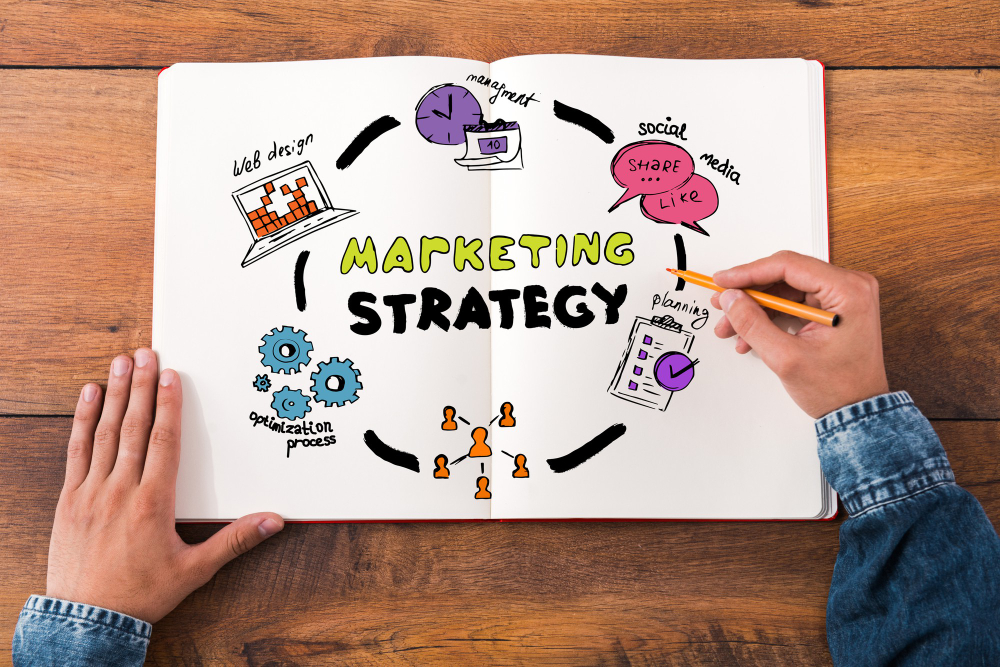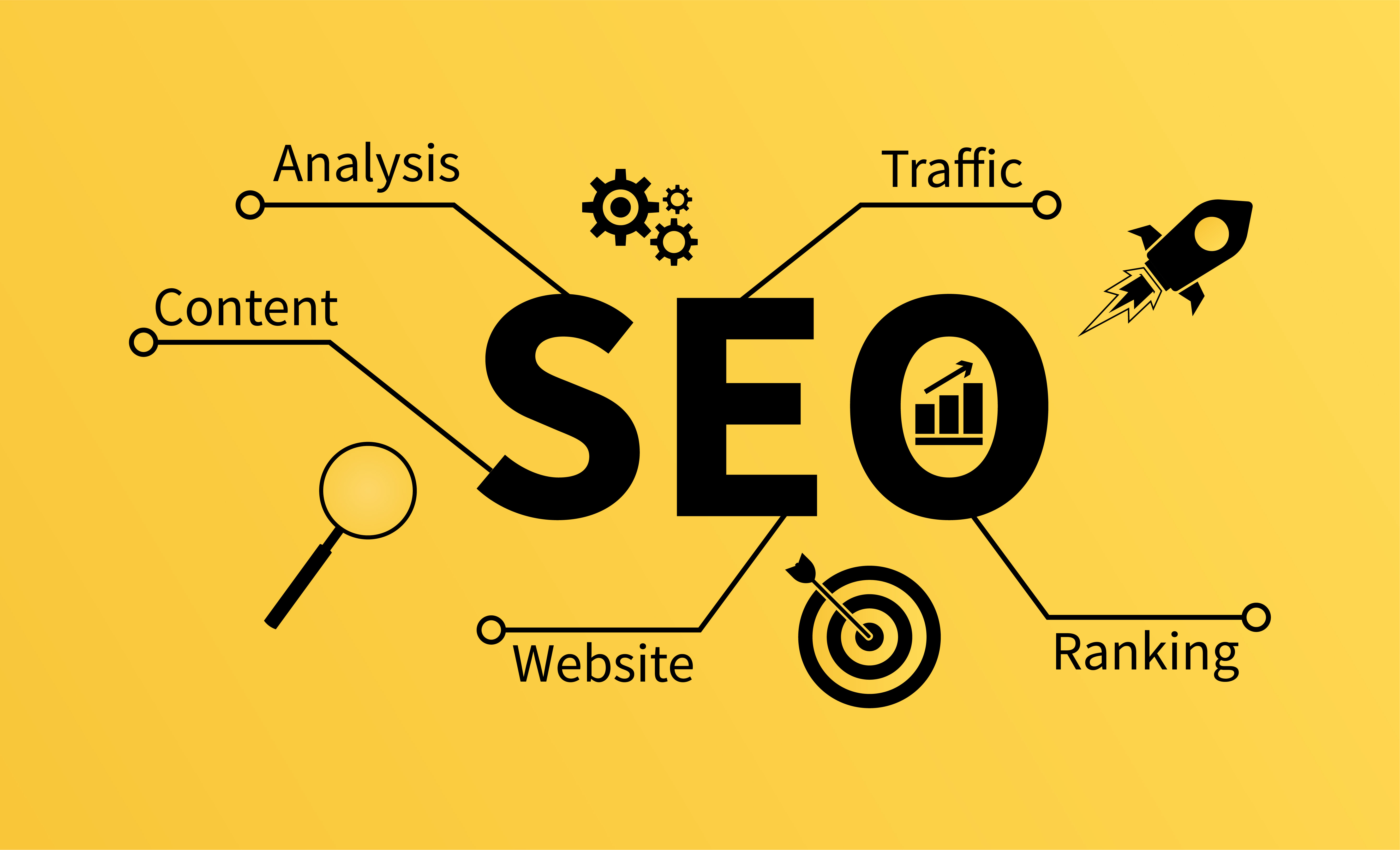
Marketing is like a lifeline for small businesses, breathing vitality and growth into their ventures. It’s the magical ingredient that gives them a fighting chance in the competitive business landscape.
By harnessing the power of marketing using a marketing automation platform well-integrated CRM software for businesses, small businesses can rise above obscurity and make their presence known. It’s their chance to tell the world, “Hey, we’re here, and we have something amazing to offer!”
Marketing helps them paint their unique story, captivating customers with their brand’s personality and values. It’s not just about attracting new customers; it’s about building lasting relationships with them. It empowers small businesses to connect with their audience on a deeper level, fostering trust, loyalty, and a genuine sense of community. In short, it makes small business marketing strong.
In a world that’s constantly evolving, marketing provides small businesses with a compass, guiding them through changing market trends and customer preferences. It’s the tool that helps them adapt, grow, and seize new opportunities. So, for small businesses, marketing isn’t just important; it’s a lifeline to success, allowing them to thrive and leave their mark on the world.
How Small Business Marketing Can Help Them Compete With Larger Companies?

Picture this: a small business, armed with passion and determination, stepping into the ring to take on the giants of the industry. It may seem like an uphill battle, but marketing becomes their mighty sword and shield. How does marketing go? Well, let’s dive in.
Marketing is the superhero cape that small businesses do to compete with larger companies. It’s their way of saying, “Hey, we may be small, but we’ve got something special to offer!” Through strategic marketing, these businesses can connect with their target audience in a way that resonates deeply.
- First off, marketing allows small businesses to pinpoint their ideal customers. They can craft precise messages and create tailored campaigns that speak directly to the hearts and minds of their desired audience. By doing so, they attract customers who truly align with their values, products, or services.
- Marketing gives small businesses a platform to showcase what makes them unique. It’s their chance to shine a spotlight on their exceptional customer service, their attention to detail, or the personalized touch they bring to every interaction. In a world where bigger doesn’t always mean better, these special qualities become their secret weapons.
- Building a strong brand is another invaluable aspect of marketing for small businesses. It’s about crafting an identity that stands out amidst the sea of competitors. With every logo, slogan, and story, they create an emotional connection with their audience. Customers begin to see them not just as a business but as a trusted companion, a partner in their journey.
- Engagement is key, and marketing opens doors for small businesses to engage in meaningful conversations with their customers. Through social media posts, blogs, and newsletters, they can build relationships, address concerns, and provide exceptional experiences. This personal touch builds loyalty that money alone can’t buy.
- Innovation is also at the core of successful marketing for small businesses. They can tap into their flexibility, quickly adapting to changing market trends and adopting new strategies. It’s their secret weapon against the slow-moving giants. By embracing creativity and staying ahead of the curve, they become agile forces to be reckoned with.
- And let’s not forget about the power of locality. Small business owners have the advantage of being embedded in their communities, where relationships are cherished. Marketing enables them to celebrate their local roots, connect with neighbors, and become trusted fixtures in the hearts of their customers.
This clearly explains that marketing isn’t just a mere tool for small businesses; it’s a powerful ally. It levels the playing field, empowering them to compete head-to-head with larger companies. With marketing as their guide and a marketing automation platform by their side, these brave businesses can rise, thrive, and leave an indelible mark on the world.
There are several marketing tools available online, but nothing can beat the benefits and power of CRM software that is integrated with different modules including marketing. CRM software can be beneficial for small businesses; read our blog “How Small Businesses Can Harness The Power Of CRM Software” to gain a deeper understanding of how CRM and marketing automation work wonders for your small business!
Some Common Challenges That Small Businesses Face In Marketing Their Products Or Services

Marketing products or services can be a daunting task for small businesses due to several common challenges. Limited resources, including budget constraints and fewer staff, make it difficult to allocate sufficient funds for marketing campaigns.
Building brand awareness is another hurdle, as small businesses often lack an established reputation and struggle to capture the attention and trust of potential customers. Identifying the right target audience and crafting targeted marketing messages can also be a challenge.
Moreover, competition from larger, well-established brands, keeping up with rapidly changing digital marketing trends, measuring marketing ROI, and building customer trust further add to the complexities faced by small business marketers in their marketing efforts.
Despite these challenges, small businesses can overcome them by adopting innovative marketing strategies, leveraging digital platforms, focusing on personalized experiences, and embracing creativity. With careful planning and perseverance, they can effectively market their products or services and achieve success in a competitive marketplace.
Why There Is A Need For A Solid Marketing Strategy To Build Brand Awareness And Attract Customers?
A solid marketing strategy is essential for building brand awareness and attracting customers for several reasons. These include:
- Firstly, it helps small businesses establish their brand identity and differentiate themselves from competitors. A well-defined brand with a compelling story and consistent messaging creates a distinct impression in the minds of customers. This differentiation is crucial in capturing attention and standing out in a crowded marketplace.
- Secondly, a solid marketing strategy ensures that the target audience is effectively reached and engaged. By identifying the ideal customers and understanding their needs and preferences, businesses can tailor their marketing efforts to resonate with them. This personalized approach increases the chances of attracting customers who are genuinely interested in the products or services being offered.
- Thirdly, a marketing strategy provides a roadmap for businesses to reach their goals. It outlines specific objectives, target markets, and tactics to achieve desired outcomes. This helps in allocating resources effectively, making informed decisions, and measuring the success of marketing efforts.
Moreover, a marketing strategy helps businesses to maintain consistency across different marketing channels and touchpoints. Consistent messaging, visuals, and experiences reinforce the brand’s identity, build trust, and create a memorable impression on customers.
- Finally, a well-crafted marketing strategy enables businesses to adapt to changing market dynamics and stay relevant. By monitoring industry trends and consumer behavior, businesses can adjust their strategies and tactics accordingly, ensuring that they are consistently reaching and engaging their target audience.
By investing time and effort into developing and implementing a strong marketing strategy, businesses can enhance their brand’s visibility, engage with their target audience, increase brand awareness, and drive customer acquisition and retention. The right marketing automation strategy always works.
A Blog Overview
This blog will provide an insightful overview of various effective marketing strategies that can help businesses thrive in today’s competitive landscape. We will delve into the power of defining your target audience, creating a strong brand identity, and exploring how creating valuable and engaging content can attract and retain customers.
Additionally, we will discuss the impact of social media marketing, uncovering the secrets to effectively leveraging popular platforms to reach and engage target audiences. Email marketing will also be explored, showcasing its potential for nurturing customer relationships and driving conversions.
Furthermore, we will touch upon the benefits of search engine optimization (SEO) to increase visibility and organic traffic.
Lastly, we will highlight the benefits of using service or SAAS or ecommerce marketing automation software that allows several integrations such as sales, marketing, communication, and others. Get ready to unlock valuable insights into diverse marketing strategies and discover how marketing and marketing automation work using CRM can fuel your business growth and success.
Exploring Various Marketing Strategies For Small Businesses In Detail

Defining Your Target Audience
Understanding your target audience is the cornerstone of success for small businesses. Defining your target audience allows you to tailor your marketing strategies to reach the right people with the right message. It’s the key to unlocking a deeper connection with your customers and meeting their specific needs. Below are some essential steps for defining your target audience that can help you build meaningful relationships with your customers.
-
Importance Of Identifying Your Target Audience
Understanding the importance of identifying your target audience is the first step toward effective marketing. By defining your target audience, you can tailor your marketing efforts to reach the right people, increasing the chances of attracting more paying customers, who are genuinely interested in what you offer.
-
Steps For Defining Your Target Audience
To define your target audience, there are several crucial steps to follow. The first is conducting market research to gain insights into customer needs and preferences. This research helps you understand the demographics, psychographics, and behaviors of your potential customers.
-
Creating Buyer Personas
One effective way to understand customer behavior and preferences is by the customer journey and creating buyer personas. These personas are fictional representations of your ideal customers, incorporating their characteristics, motivations, goals, and pain points. This helps you empathize with your target audience and tailor your marketing strategies accordingly.
-
Analyzing Customer Demographics And Psychographics
Analyzing customer demographics, such as age, gender, location, and income, provides valuable insights into who your target audience is. Additionally, studying psychographics, including values, interests, lifestyles, and attitudes, helps you understand their motivations and decision-making processes.
-
Identifying Customer Pain Points
Identifying customer pain points is crucial for addressing their specific needs and challenges. By understanding what problems your target audience faces, you can position your products or services as solutions, effectively meeting their demands.
-
Developing A Marketing Message That Resonates With Your Target Audience
Once you have a clear understanding of your target audience, you can develop a marketing message that resonates with them. Tailor your communication to address their needs, speak their language, and highlight the benefits and solutions you provide.
Thus, defining your target audience is a critical component of successful marketing as you can effectively reach and engage the right audience, increasing the likelihood of attracting and retaining customers.
Creating A Strong Brand Identity and Messaging
Creating a strong brand identity and messaging is a crucial aspect of any small business marketing, for brand differentiation, customer engagement, and long-term brand success. Below are some steps that small businesses can follow to create a strong brand identity and messaging.
- Establishing your brand identity
- Defining your brand’s personality, values, and unique qualities
- Identifying your target audience and understanding their preferences
- Conducting market research to gain insights into industry trends and competitors
- Developing your brand messaging
- Crafting a compelling narrative that reflects your brand’s story and mission
- Developing core messages that resonate with your target audience
- Creating a unique value proposition that sets you apart from competitors
- Designing a logo and visual identity
- Designing a visually appealing and memorable logo that represents your brand
- Choosing colors, typography, and imagery that align with your brand’s personality
- Ensuring consistency in visual elements across different platforms and touchpoints
- Creating a brand style guide
- Documenting guidelines for logo usage, color schemes, typography, and imagery
- Defining voice and tone for written content to maintain consistency
- Providing a comprehensive reference for employees, designers, and external partners
- Consistently applying your brand identity and messaging
- Incorporating your brand elements into all marketing materials, including websites, social media profiles, and advertisements
- Ensuring consistent communication across all customer touchpoints
- Training employees to embody the brand identity in their interactions and customer service
- Evolving your brand identity and messaging
- Monitoring market trends and customer preferences for potential adjustments
- Conducting periodic brand audits to evaluate brand effectiveness
- Adapting brand messaging and visual elements to stay relevant and maintain customer engagement
By following these steps, small businesses can create a strong brand identity and messaging that resonates with their target audience, establishes credibility, and through customer relationship management fosters long-term customer loyalty.
Developing A Content Marketing Strategy
Developing a content marketing strategy involves the systematic planning and execution of content marketing automation to achieve specific business objectives. Below are some steps that businesses need to follow to develop a well-rounded content marketing strategy that attracts, engages, and retains their target audience while achieving their desired marketing outcomes.
-
Define your content marketing goals
Establish the objectives you want to achieve through content marketing, such as brand awareness, lead generation, or thought leadership.
-
Identify your target audience
Determine who your ideal customers are and understand their needs, preferences, and pain points to create content that resonates with them.
-
Conduct a content audit
Evaluate your existing content to identify gaps, strengths, and areas for improvement. This helps in aligning your future and own strategy with your goals and audience needs.
-
Choose the right content formats
Select the appropriate content formats (blogs, videos, infographics, podcasts, etc.) that suit your target audience’s preferences and the message you want to convey.
-
Create a content calendar
Plan and organize your content creation and publication schedule to ensure consistency and timely delivery of content.
-
Create high-quality content
Develop valuable, informative, and engaging content that provides solutions, educates, entertains, or inspires your audience. Maintain a consistent tone and style that aligns with your brand.
-
Promote your content
Utilize various marketing channels, including social media, email newsletters, guest blogging, and influencer partnerships, to promote and distribute your content to a wider audience.
-
Measure your results
Track and analyze key performance metrics, such as website traffic, engagement rates, conversions, and social media reach, to evaluate the effectiveness of your content marketing efforts.
By following these steps, businesses can develop a comprehensive content marketing and marketing automation strategy that helps them achieve their goals.
Optimizing For Search Engines (SEO)
Optimizing a small business website for search engines is crucial for several reasons.
-
It improves the visibility of the website on search engine result pages (SERPs), making it easier for potential customers to find the business online.
-
SEO helps small businesses establish credibility and trust with their target audience. This can positively impact the perception of the brand and increase the likelihood of engagement and conversions.
-
Optimizing for search engines allows small businesses to compete with larger competitors. This means that even businesses with limited resources can achieve prominent online visibility and reach their target audience effectively.
Below are some steps small businesses need to follow to optimize their business for search engines and witness the difference.
Understanding the Basics of SEO

Familiarize yourself with the fundamental principles of search engine optimization, including the importance of keywords, relevancy, user experience, and website visibility on search engine result pages (SERPs).
- Creating High-Quality Content
Identify relevant keywords and phrases that your target audience is likely to use when searching for products or services similar to what you offer. This research helps you optimize your content to align with popular search queries.
- Creating high-quality content
Develop valuable and informative content that addresses the needs and interests of your target audience. Incorporate relevant keywords naturally within the content while maintaining its quality and readability.
- Optimizing your website’s structure and design
Ensure that your website is well-organized, easy to navigate, and user-friendly. Optimize page titles, meta descriptions, headings, and URLs to include relevant keywords and accurately describe the content.
- Building backlinks
Seek opportunities to obtain backlinks from reputable and relevant websites. Backlinks act as endorsements, indicating the credibility and authority of your website to search engines.
- Monitoring and measuring your results
Use analytics tools to track and analyze the performance of your website and content. Monitor key metrics like organic traffic, bounce rates, conversion rates, and keyword rankings to gauge the effectiveness of your SEO efforts.
By implementing these SEO practices, businesses can improve their website’s visibility, increase organic traffic, and enhance their online presence. Optimizing for search engines helps businesses connect with their target audience and drive relevant traffic, ultimately leading to improved search rankings and business growth.
Utilizing Social Media Marketing To Connect With Customers
Social media marketing has revolutionized the way businesses engage with their customers. It involves leveraging social media platforms to build brand awareness, foster customer relationships, and drive business growth. By effectively utilizing social media marketing, businesses can raise brand awareness and connect with their target audience in meaningful ways.
Social media platforms provide a direct line of communication, allowing businesses to interact with customers, address their queries or concerns, and provide timely customer support. This two-way interaction fosters a sense of community and strengthens the relationship between the business and its customers. But this communication can become easier and more manageable when you choose to integrate your social media with CRM software.
CRM with social media integration offers extensive targeting capabilities, enabling businesses to reach their specific target audience based on demographics, interests, and behaviors. This targeted approach ensures that marketing messages are delivered to the right people, increasing the chances of engagement, conversions, and customer loyalty. Moreover, you can access and manage all your social media accounts using CRM.
Additionally, social media integrated into CRM provides valuable data and insights into customer behavior, preferences, and trends. By analyzing these metrics, businesses can refine their marketing strategies, tailor their messaging, and optimize their social media campaigns for better results.
To know more about the power of analytics and metrics, read our blog “Unlocking The Power Of Your Data: A Beginner’s Guide To CRM Analytics.” This piece of information is ideal for beginners and helps them gain insight into using analytical CRM, focus to improve business processes and make smarter decisions to differentiate from competitors.
Thus, it can be said that by harnessing the potential of social media and CRM both, businesses can effectively engage with their audience, build strong customer relationships, and drive business growth.
Setting Up Email Marketing Campaigns To Nurture Leads And Increase Sales
Email marketing campaigns play a crucial role in nurturing leads and driving sales for businesses. By effectively setting up and implementing email marketing strategies, businesses can build relationships with their audience, nurture leads, and ultimately increase conversions and sales.
The process begins with capturing leads through various channels, such as website opt-in forms or landing pages. Once the leads are acquired, businesses can create targeted email campaigns to deliver personalized and relevant content directly to their subscribers’ inboxes.
With email integration into CRM, businesses can nurture leads through email which involves a series of strategically planned messages that educate, inform, and provide value to subscribers. By delivering valuable content, businesses can build trust, establish expertise, and position themselves as a reliable solution provider.
Also, email marketing campaigns can be used to promote products, discounts, or special offers, creating a sense of exclusivity and urgency among subscribers. You can create and run those campaigns through CRM and drive traffic to multiple channels and the business website, increase conversions, and boost sales.
To have a better understanding of how it works, read our blog “10 Tips For Creating Effective Email Marketing Campaigns To Increase Brand Awareness”.
Undoubtedly, automation plays a vital role in email marketing campaigns, allowing businesses to set up triggered emails based on specific actions or time-based sequences. This automation work ensures timely and personalized communication with subscribers, enhancing their overall experience and increasing the chances of conversions.
Therefore, setting up email marketing campaigns is an effective way to nurture leads and drive sales. By capturing leads, delivering personalized content, promoting offers, utilizing marketing automation tools, and analyzing data, businesses can effectively engage with their audience, increase conversions, and achieve their sales goals.
Measuring and Analyzing the Effectiveness of Your Marketing Efforts To Continually Improve and Refine Your Strategy
Measuring and analyzing the effectiveness of your marketing efforts is essential for making informed decisions, optimizing performance, and refining your overall marketing strategy. By employing various tools and techniques, businesses can gain valuable insights into their marketing campaigns and make data-driven improvements.
-
Set clear goals
Define specific and measurable marketing goals that align with your overall business objectives. This could include increasing website traffic, generating leads, or improving conversion rates.
-
Identify relevant metrics
Determine which key performance indicators (KPIs) are most relevant to track your progress toward achieving your goals. These could include website analytics, social media engagement, email open rates, or sales figures.
-
Utilize analytics tools
Take advantage of analytics tools, such as Google Analytics or social media insights, to collect data and gain insights into the performance of your marketing campaigns. These tools can provide valuable information on user behavior, demographics, and conversion tracking.
-
Analyze data and trends
Regularly review and analyze the data to identify patterns, trends, and areas of improvement. Look for opportunities to optimize your marketing strategies based on the insights you gather.
-
Conduct A/B testing
Experiment with different variations of your marketing elements, such as ad copy, landing pages, or email subject lines, to determine which version performs better. A/B testing allows you to make data-driven decisions and refine your tactics accordingly.
-
Adapt and refine
Use the insights gained from analyzing the data to make informed decisions and refine your marketing strategy. Continuously iterate and optimize your campaigns based on data analysis and the feedback and results you receive.
-
Stay informed and updated
Keep up with industry trends, changes in consumer behavior, and emerging marketing technologies. This knowledge will help you stay ahead of the curve and make proactive adjustments to your marketing efforts.
Wrapping Up!
Implementing a well-crafted marketing strategy is vital for small businesses to thrive in a competitive landscape. By utilizing proven marketing strategies, such as defining target audiences, establishing a strong brand identity, leveraging content marketing, optimizing for search engines, utilizing social media, setting up email campaigns, and measuring effectiveness, small businesses can effectively boost their brand and crush their competition.
Incorporating these strategies into a comprehensive marketing plan empowers small businesses to compete with larger competitors, attract customers, and grow their brand. By staying agile, adapting to market trends, and consistently delivering value to their target audience, small businesses can position themselves for success and achieve their business goals.
Free CRM software for businesses can help small businesses elevate their brand, crush their competition, and thrive in today’s dynamic business landscape